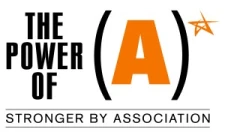GSA, optics, over reactions and glass houses
1 August 2012 2 Comments
I didn’t exactly go through the five stages of grief when the public furor over the GSA Las Vegas retreat first erupted in the media. But I did go through something like that process.
Stage one is denial: I am a “benefit of the doubt” kind of guy. If there is an innocent interpretation, I will go there first, rather than buy in to the most damning explanation.
I don’t know all the details, and I am sure at least some of the outrage was justified. But I am equally sure some of it was unfair. A friend of mine in the association field, who ought to know better, was offended that “tax dollars went to putting up GSA staff in a luxury suite.” Now, I don’t know for sure, but it is a safe bet the GSA didn’t actually pay anything like the retail rate for that suite. It was certainly deeply discounted, if not actually comped as part of the total meeting package. And just possibly the group actually saved money by hosting social activities in that space rather than renting a separate venue.
 Then came stage two, anger, as it became clear that even if things weren’t as utterly reprehensible as the press coverage and righteous indignation wanted to paint them, this was bad. In this sound bite and visual image driven world, the facts don’t matter. The GSA’s choices couldn’t be explained away, even if all the facts were on their side (and I seriously doubt that is the case). The whole thing just looked bad, and once you are forced to explain yourself, you’ve already lost the battle[1].
Then came stage two, anger, as it became clear that even if things weren’t as utterly reprehensible as the press coverage and righteous indignation wanted to paint them, this was bad. In this sound bite and visual image driven world, the facts don’t matter. The GSA’s choices couldn’t be explained away, even if all the facts were on their side (and I seriously doubt that is the case). The whole thing just looked bad, and once you are forced to explain yourself, you’ve already lost the battle[1].
The congressional overreaction was equally predictable and anger inducing Over broad “solutions” (which no one on the Hill is willing to take credit for authoring and which were unanimously approved by legislators who didn’t even bother to read them) will create problems where none existed before and won’t fix the problem that stirred a thoroughly gridlocked Congress to actually take action in the first place.
Bargaining is stage three. The formal legislative response being spearheaded by ASAE is appropriate, sound and absolutely vital to the association community. It deserves all of our support. We need to defend our meetings from being unfairly painted with the broad brush of scarlet that the mainstream media and Congress are applying to all meeting events. We need to roll back the asinine restrictions that will hamstring even the purest of pure, publicly beneficial educational, development, networking and information exchange events.
Stage four, depression, follows. The occasional bad actor’s black eye is a cross we all are going to have to bear. For a long time. And it is going to be hard to defend the defensible without sounding like we are making excuses for the indefensible.
Where I part with the classical Kübler-Ross model is stage five: acceptance. I am not prepared to do that.
But now that the initial furor has begun to die down, I feel safe offering a word of warning.
Don’t let your justifiable outrage over how unfair and misguided the press coverage and legislative response to “GSA-Gate” was lull you into a false sense of complacency or moral superiority. Let’s be honest: this wound was self-inflicted. Albeit, inflicted by one organization’s meeting, But nonetheless self-inflicted. And all of us who do meetings take a hit when one meeting’s atrocious optics capture headlines.
And as long as we’re being honest, let’s take a good hard look at our own meetings.
Sometimes what looks like a boondoggle is just that. A boondoggle.
We need to be absolutely above reproach in how we structure and promote our meetings. That means living up in full to the claims we make about them. Do they truly match the brochure’s promise to deliver real value, regardless of who is footing the bill? Do they actually serve our particular, parochial interests in a manner that also advances the public interest?
And how would they look if they showed up on YouTube?
[1] In my more than thirty-years in the profession I have never spent a dime of my association’s money for first class travel. But I travel enough that I occasionally score a free upgrade. Ever try to explain that when the chairman of the board trudges past you in first on his way to a middle seat in coach?


